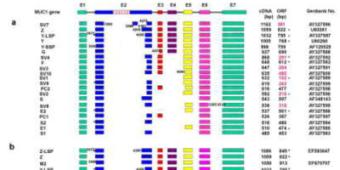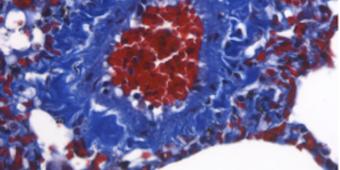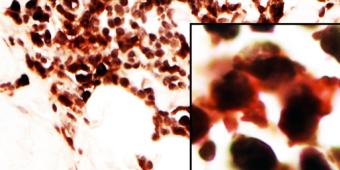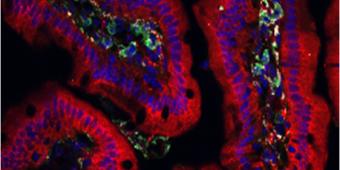The University of Pittsburgh has a long tradition of excellence in immunology, which began with Jonas Salk and the development of the polio vaccine and continues with the development of vaccines for cancer and HIV. The Immunology program faculty includes 57 active members, trained at the most prestigious universities and research institutes worldwide. Members' research labs are funded by grants from the National Institutes of Health and many private foundations.
Because immunology intersects so many facets of health and disease, program faculty members have appointments in many departments of the Medical School, including Molecular Genetics and Biochemistry, Pathology, Pharmacology, Medicine, Surgery, Ophthalmology, Dermatology, and Pediatrics. Many program members are also members of the University of Pittsburgh Cancer Institute, the Thomas E. Starzl Transplantation Institute, and other related departments, which strengthens the program’s cohesion and promotes opportunities for cutting-edge research in immunology.
Tumor Immunology, transplantation immunology, the immunology of infectious diseases, autoimmunity, immunology of barrier surfaces, and studies of underlying immunologic mechanisms currently form the focus of Immunology program members’ research efforts. Many recent clinical breakthroughs have been achieved at the University of Pittsburgh that derive directly from the research of Immunology program laboratories. These include the development of dendritic cell-based vaccines for the treatment of melanoma and the treatment of rheumatoid arthritis via gene therapy. Graduate student members in program labs contribute directly to the success of these important projects. Most critically, the research of current and future graduate students will lead to the next generation of immune-based therapies for human disease.

Cutting-edge research on the interaction of the immune system and tumors is pursued in several laboratories in the department and is expected to deliver novel immunotherapeutics for cancer treatment.

Research in this area concentrates on weakening both the acute and chronic phases of immune responses, to facilitate the acceptance of foreign organ and tissue transplants.

Pathogens and host immune defenses have co-existed for millennia. The immune system has developed a variety of approaches to controlling infection, ranging from direct killing of pathogens to inhibiting replication.

Diseases such as rheumatoid arthritis, multiple sclerosis, systemic lupus erythematosus, and type-1 diabetes occur when immune responses are directed at the body’s cells and tissues.

Barrier surfaces are the first to encounter pathogens and have unique immunological mechanisms to prevent infection. The lung, gut, and skin form major physical and immunological barriers to infection.

Many molecular and cellular regulatory mechanisms that underlie all immune system functions are studied in laboratories throughout the department, most with a direct application to disease.

The Center for Systems Immunology (CSI) at the University of Pittsburgh is focused on nucleating and nurturing research and training at the interface of Immunology, Computational Biology, and Biological Engineering.
